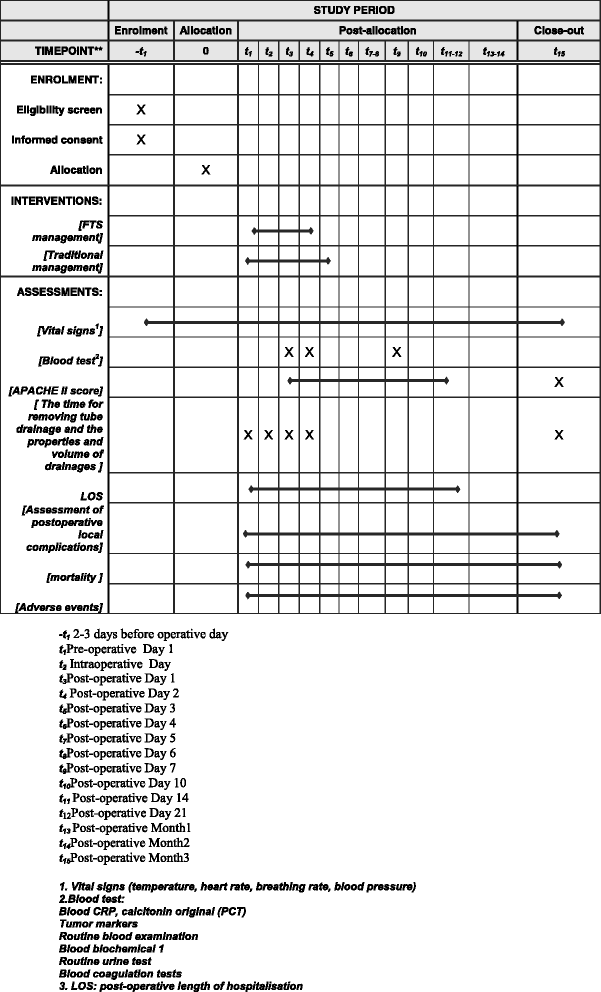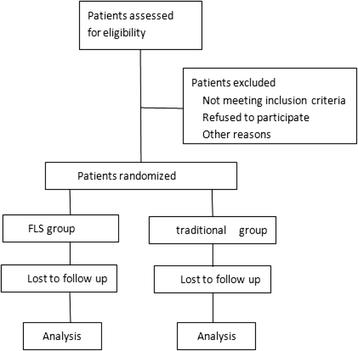Fast-track surgery after gynaecological oncological surgery: study protocol for a prospective randomised controlled trial
- PMID: 27978842
- PMCID: PMC5159978
- DOI: 10.1186/s13063-016-1688-3
Fast-track surgery after gynaecological oncological surgery: study protocol for a prospective randomised controlled trial
Abstract
Background: Fast-track surgery (FTS), also known as enhanced recovery after surgery, is a multidisciplinary approach to accelerate recovery, reduce complications, minimise hospital stay without increasing readmission rates, and reduce health care costs, all without compromising patient safety. The advantages of FTS in abdominal surgery most likely extend to gynaecological surgery, but this is an assumption, as FTS in elective gynaecological surgery has not been well studied. No consensus guidelines have been developed for gynaecological oncological surgery although surgeons have attempted to introduce slightly modified FTS programmes for patients undergoing such surgery. To our knowledge, there are no published randomised controlled trials; however, some studies have shown that FTS in gynaecological oncological surgery leads to early hospital discharge with high levels of patient satisfaction. The aim of this study is whether FTS reduces the length of stay in hospital compared to traditional management. The secondary aim is whether FTS is associated with any increase in post-surgical complications compared to traditional management (for both open and laparoscopic surgery).
Methods/design: This trial will prospectively compare FTS and traditional management protocols. The primary endpoint is the length of post-operative hospitalisation (days, mean ± standard deviation), defined as the number of days between the date of discharge and the date of surgery. The secondary endpoints are complications in both groups (FTS versus traditional protocol) occurring during the first 3 months post-operatively including infection (wound infection, lung infection, intraperitoneal infection), post-operative nausea and vomiting, ileus, post-operative haemorrhage, post-operative thrombosis, and the Acute Physiology and Chronic Health Enquiry II score.
Discussion: The advantages of FTS most likely extend to gynaecology, although, to our knowledge, there are no randomised controlled trials. The aim of this study is to compare the post-operative length of hospitalisation after major gynaecological or gynaecological oncological surgery and to analyse patients' post-operative complications. This trial may reveal whether FTS leads to early hospital discharge with few complications after gynaecological surgery.
Trial registration number: NCT02687412 . Approval Number: SCCHEC20160001. Date of registration: registered on 23 February 2016.
Keywords: Fast-track surgery; Gynaecological surgery; Oncological surgery; Post-operative length of hospitalisation; Randomised controlled study.
Figures
References
Publication types
MeSH terms
Associated data
LinkOut - more resources
Full Text Sources
Other Literature Sources
Medical



